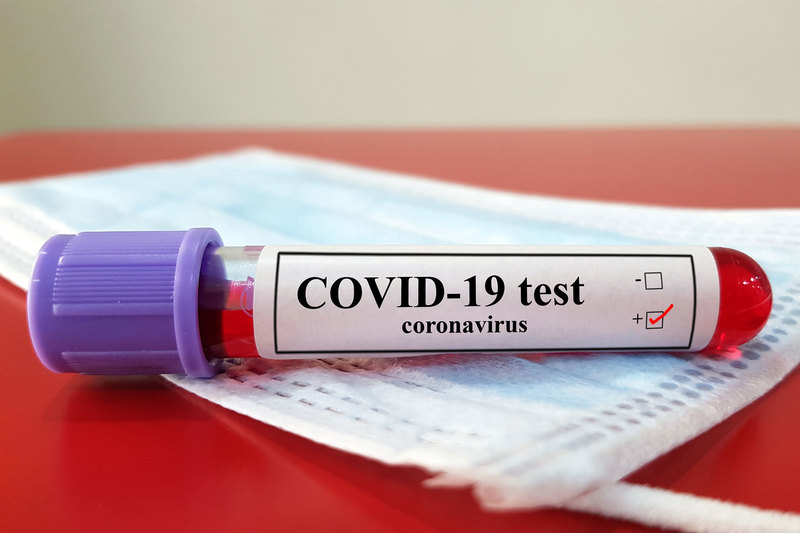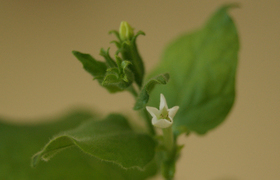UCT spin-off receives millions in European funding
22 December 2020 | Story Niémah Davids. Photo Adobe Stock. Read time 5 min.
Cape Bio Pharms, a biotech company with roots in the University of Cape Town’s (UCT) Biopharming Research Unit (BRU), has received a multimillion-rand capital injection to fast-track the production of affordable plant-based rapid diagnostic COVID-19 test kits.
The approximately R900 million grant comes courtesy of the European Investment Bank (EIB) and the Foundation for Innovative New Diagnostics (FIND), a global non-profit organisation “accelerating the development, evaluation and delivery of high-quality, affordable diagnostic tests for poverty-related diseases”.
The funding will allow for the construction of a new facility, Cape Biologix Technologies, a subsidiary of Cape Bio Pharms, which will be built in Mauritius. The facility will scale up innovative plant-based manufacturing and commercialise the successful development of plant-based recombinant proteins.
The official announcement and virtual signing took place on Friday, 18 December 2020.
‘Commitment to the poor’
Speaking during the event, UCTʼs vice-chancellor, Professor Mamokgethi Phakeng, said that the Western world is not in the habit of looking to Africa for solutions to global problems. But the investment by the EIB and FIND will change that.
“I am very proud to see my country and my continent recognised in this way by the EIB, which is supporting the ability of African-based research, technology and investment to address the critical health needs we all share,” Professor Phakeng said.
“This is also a commitment to the poor around the world who will benefit from this innovation.”
“This is also a commitment to the poor around the world who will benefit from this innovation.”
With the BRU having laid a solid foundation by using the Nicotiana benthamiana in their research for over 20 years, the team of scientists at Cape Bio Pharms have drawn from this body of research and have been hard at work using N. benthamiana plants, a close relative of tobacco, as a bioreactor to produce COVID-19 proteins and antibodies. Scientists are working towards developing components of a serology test for the disease, which detects antibodies in a patient’s blood and can be used to determine if they have been exposed or previously infected by the virus. The test kit will be distributed throughout sub-Saharan Africa to help fight the pandemic in developing nations.
Essentially, the plant, which is also used because of its strength and ability to grow quickly, is harnessed at a small factory to produce proteins and antibodies that can later be extracted for use in vaccines and diagnostics. Scientists achieve this by “infecting” the plants with an engineered soil bacterium that transfers DNA to the plants and induces them to produce proteins known as antigens from that genetic information.
Unlocking large-scale production
Belinda Shaw, the chief executive of Cape Bio Pharms, said that effective and affordable testing and vaccinations are critical to tackle COVID-19, HIV and other diseases causing “immense health, social and economic harms to human health” in Africa and across the globe.
“Cape Bio Pharms, the holding company of Cape Biologix, has successfully shown how plant protein can quickly and economically produce proteins essential for disease testing and therapy,” Shaw said.
“Today … is a milestone for medical research in Africa and global public health.”
She said that the EIB’s and FIND’s support will unlock large-scale production of COVID-19 tests in Africa, as well as large-scale specialist production to combat HIV and a range of other diseases impacting millions of people around the world.
“Today [18 December] is a milestone for medical research in Africa and global public health,” Shaw said.
The funding will enable Cape Biologix to build a new manufacturing facility, expand laboratory processing and build climate-controlled hydroponic grow rooms in Mauritius to provide plant-made proteins for testing and treatment of COVID-19 and other endemic diseases.
World-class research
According to Ambroise Fayolle, the vice-president of the EIB, scaling up medical innovation and specialist manufacturing is crucial to control COVID-19 and other treatable diseases for which treatment is not accessible for many African countries.
He said that the investment will bring world-class research from laboratories in Africa to improve the lives of millions of people.
“The EIB, as part of team Europe, is pleased to provide support to Cape Biologix to expand pharmaceutical production, create jobs and increase access to affordable disease testing and treatment across Africa and around the world.”
 This work is licensed under a Creative Commons Attribution-NoDerivatives 4.0 International License.
This work is licensed under a Creative Commons Attribution-NoDerivatives 4.0 International License.
Please view the republishing articles page for more information.










